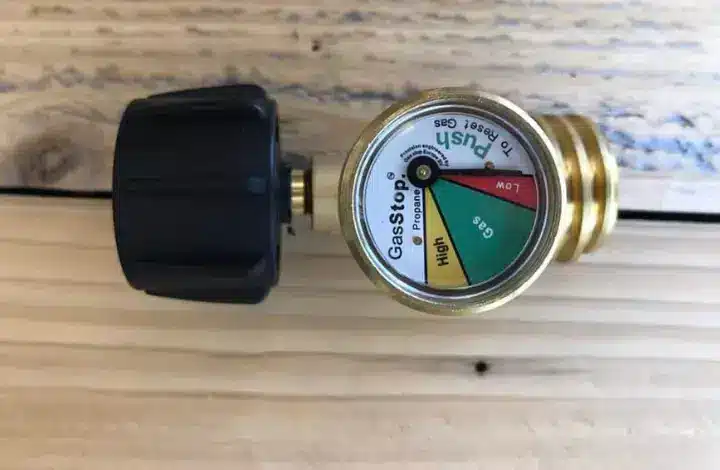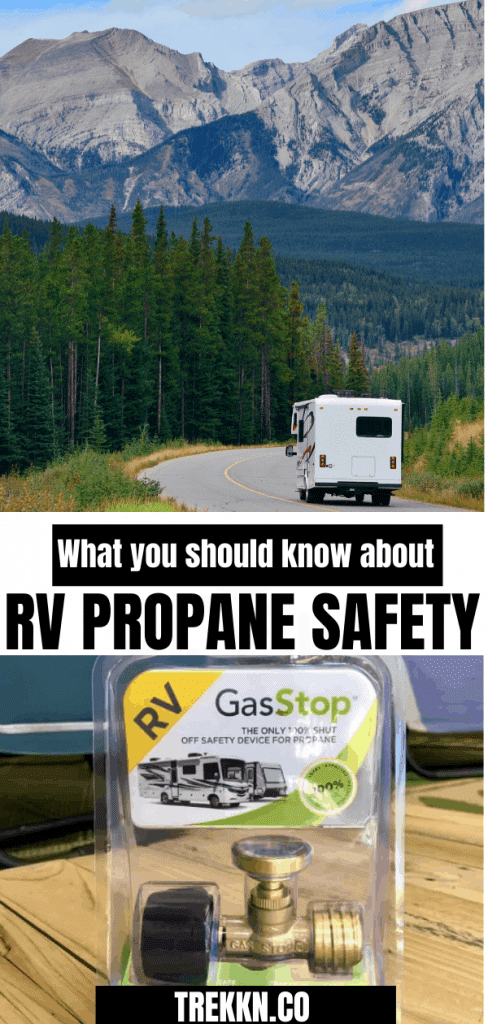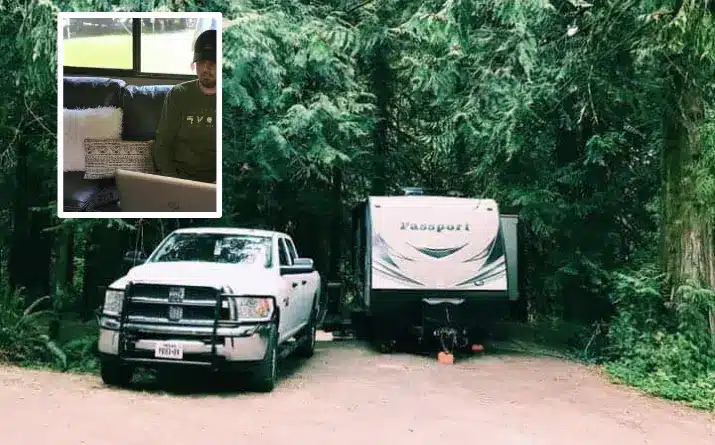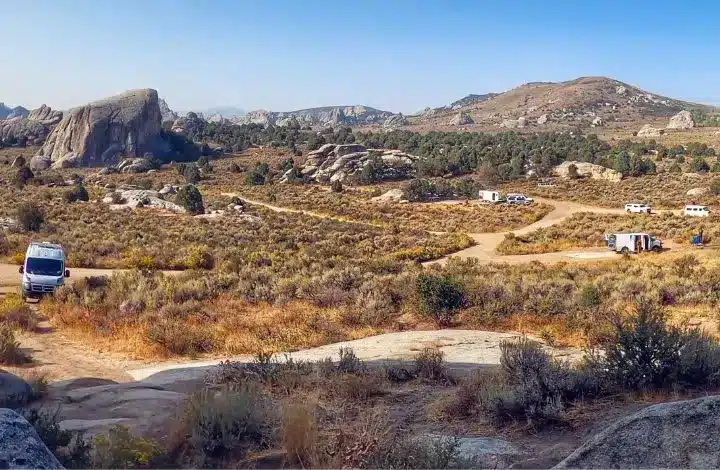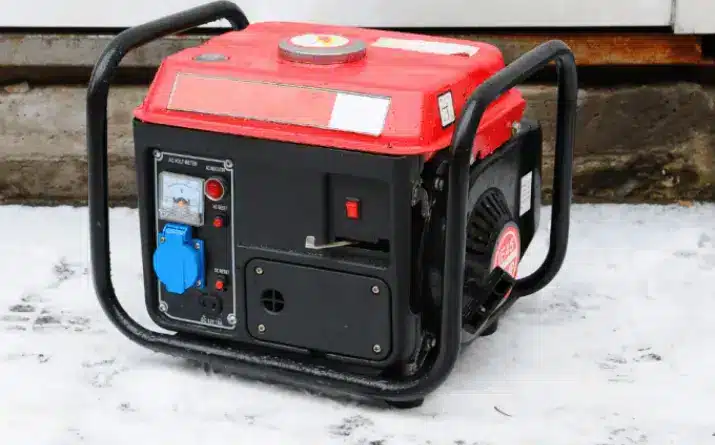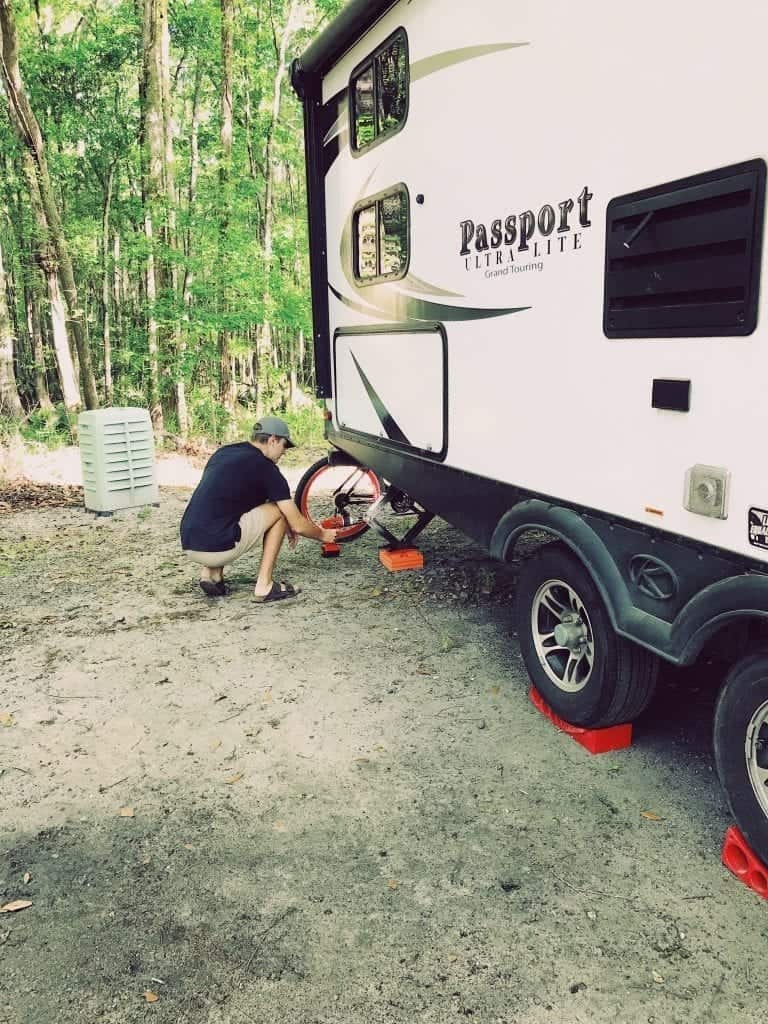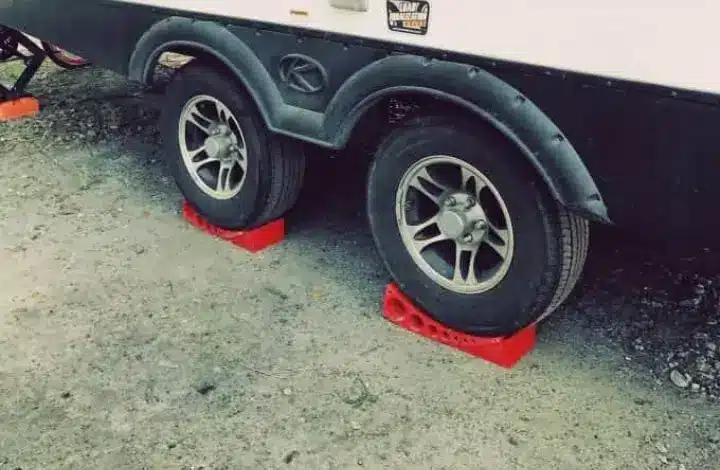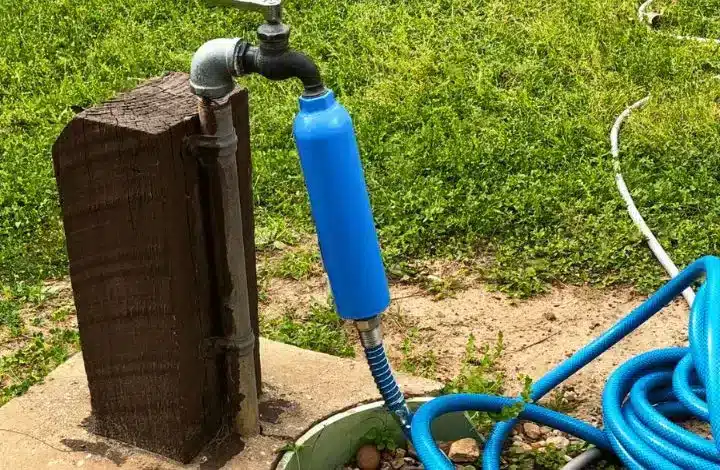An Essential Safety Guide For RV Propane Systems
The day you pick up your first RV, new or used, is a day you will never forget. It’s also the day you realize how much you still need to learn about RV safety and maintenance. One of your top priorities to help ensure safe travels is to understand RV propane safety measures. That’s what we’re here to talk about today.
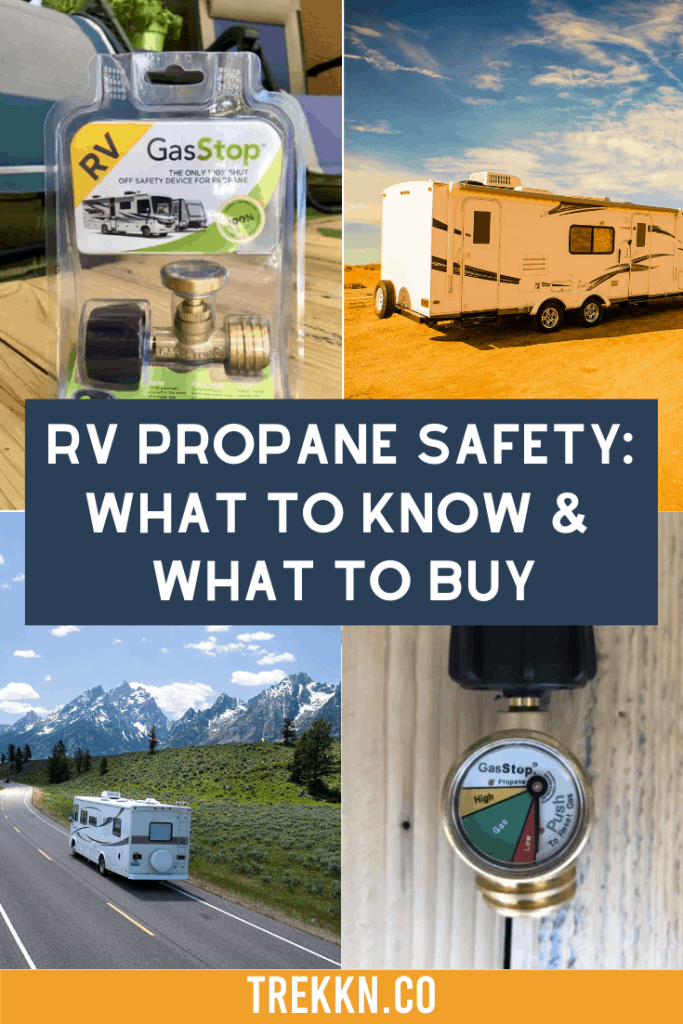
During our full-time RV travels I did not take the time to fully comprehend all of the safety guidelines associated with the propane (LP) tanks on my travel trailer. I was a bit naive about our RV’s propane system.
Looking back on it now, I am thankful that we did not end up having any major issues with our propane delivery system as a result of my lack of understanding.
You don’t need to leave it to chance. The best thing you can do is understand how to best keep you and your family safe with propane on board. And decreasing the likelihood of a propane safety incident will require better information, better practices and better products.
Understanding RV Propane Systems
I will kick off with a quick tip that I learned the hard way about the propane system in my RV.
When you open the valves on your DOT propane tanks (normally found on travel trailers and fifth wheels) by turning the triangular knobs on top, you MUST open the valves slowly. Opening the valves too quickly will cause the built-in safety mechanism (excess flow valve) to engage and restrict flow by 80-90%. This will not allow your appliances to operate properly.
We have a simple solution if this happens to you. Turn off the valve. Disconnect the hose or tubing. Reattach the tubing and follow the tip above. Open the valve slowly. Problem solved!
Important Terms to Know
We’re talking about pressurized gas here. It’s not a common topic of discussion. So let’s start by explaining a few common terms to help ensure everyone understands the terminology and information provided in this article.
RV Appliances Powered by Propane
Depending on the type of RV you own, there are various appliances that may be powered by propane. These are the most common propane-fueled appliances:
- Stovetop (range)
- Oven
- Hot water heater
- Heating system
- Refrigerator (likely either a 2-way or 3-way appliance, capable of running on multiple power sources)
In the case of 2- or 3-way RV refrigerators, they will normally default to running on electricity if it’s available. For example, when you hook up to AC shore power or a generator. If electricity is disconnected or shut off, these appliances will normally switch automatically to a secondary source such as propane or DC, unless you have chosen to deactivate the automatic switching.
As you can see, your RV is highly dependent on propane in most cases in order for you to accomplish simple, daily tasks.
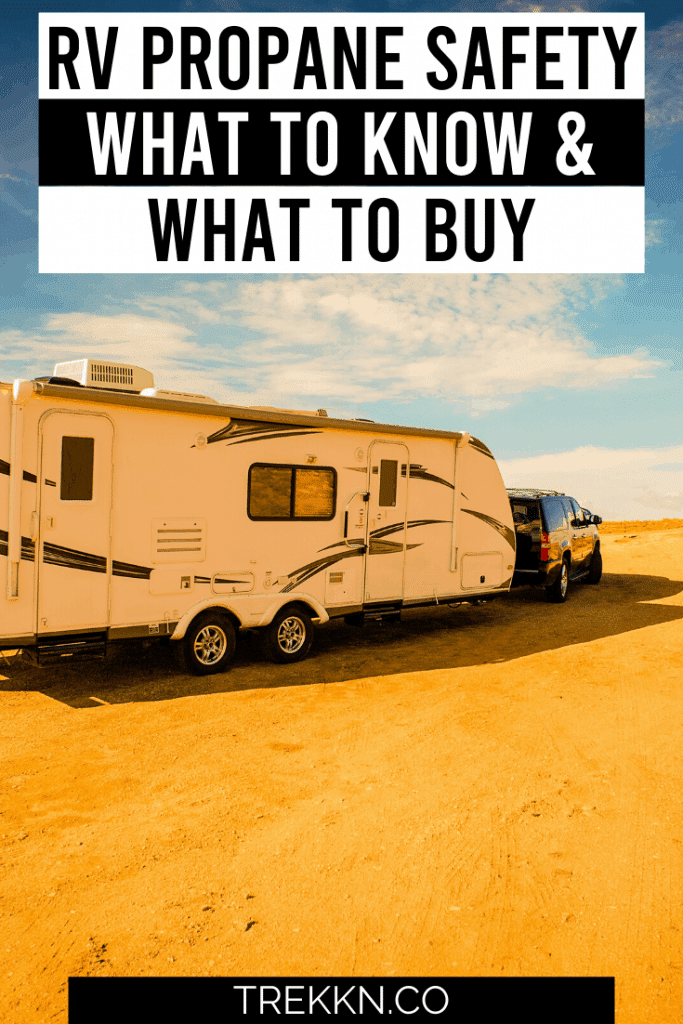
Where are RV Propane Tanks Located?
TRAVEL TRAILERS
On most travel trailers, removable DOT propane tanks are normally located at the front of the trailer on a plate attached to the trailer’s tongue. Infrequently, they may be located at the rear bumper. In most cases, the tanks will be protected from damage and degradation by a plastic, removable cover.
FIFTH WHEELS
On fifth wheels, the removable DOT propane tanks are located in storage compartments on the trailer. You will normally find two tanks (typically 40 lb tanks) on fifth wheel trailers and they may be located in a single storage compartment or possibly one tank on each side of the RV in separate storage compartments.
DRIVEABLE RVs
For driveable motor homes, the ASME tank can be located in a variety of different places within a storage compartment. But it will not be located on the exterior of the vehicle.
How to Measure Propane Levels in the Tank
Some grills make it very easy to measure how much propane is left in the tank. The hook under our grill moves up or down depending on the weight of the tank. As the hook moves, it exposes a small red marker. How much red is visible indicates the amount of propane. So all it takes to know how much propane is left is a quick visual inspection. This is great because you don’t want to run out in the middle of cooking up a tasty rib eye steak.
WEIGHT IS AN INDICATOR
If you use smaller DOT tanks, you can get a feel how much gas remains based on simply lifting the tank. You can also weigh it if you have a large enough scale and compare it to the weight of an empty tank. The first option is not very accurate. The second isn’t very practical.
USE HOT WATER TO MEASURE THE PROPANE LEVEL
Another trick is to use hot water. Simply pour hot water down one side of the tank. Use enough water to warm the exterior metal.
Because propane is extremely cold, you should be able to use the palm of your hand to feel the side of the tank and find a spot where the temperature changes. That line indicates the level of propane you have left.
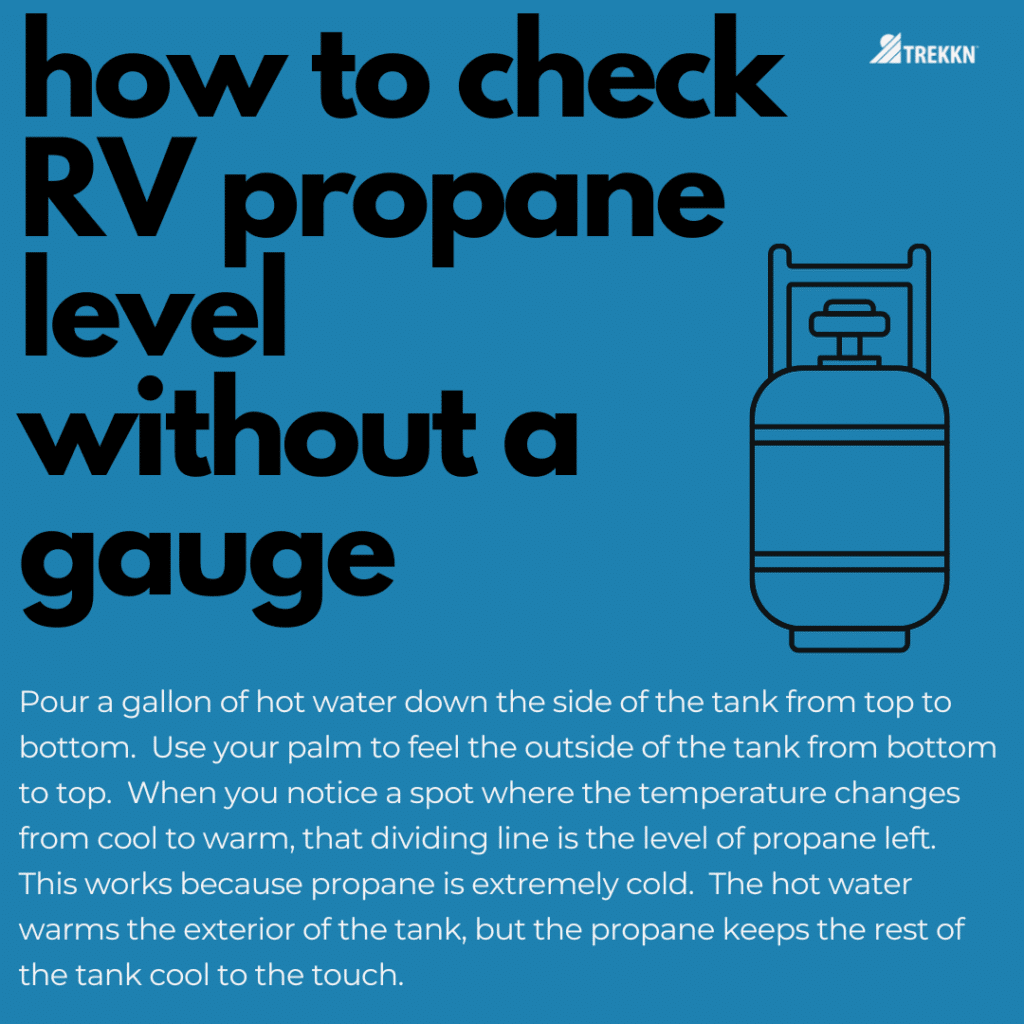
Can You Travel With Your Propane Valves Open?
To be honest with you, I was hesitant about whether I should even include this topic in this post. Believe it or not, it is one of the most hotly debated points among RVers for a variety of reasons.
I’m not going to try and tell you what to do here. You’re a grown-up capable of managing your own risks and making your own decisions. Accordingly, I won’t give you advice about this specific topic.
CONSIDERATIONS FOR TRAVELING WITH PROPANE
I will, however, mention the following general points one may want to consider when thinking about traveling with propane tank valves open:
Built-In RV Propane Safety Features
Let me put a caveat into the mix here: I am not an expert on RV propane systems. What I am offering here is my best understanding to date about standard safety features.
I encourage you to check directly with RV manufacturers to better understand and implement RV propane safety measures. This is one of those topics in the owner’s manual that should actually be read.
EXCESS FLOW SAFETY VALVE
Having said that, the only “safety feature” that I am aware of related to the propane system is the excess flow valve (EFV) mentioned above. This mechanical safety feature cuts the flow of propane by approximately 80-90% in the event of a major leak (line severed, fitting has come loose, etc.).
Propane Safety Devices
I was recently introduced to a unique propane safety device designed for use on RVs. GasStop is an emergency shut-off valve for propane gas cylinders.
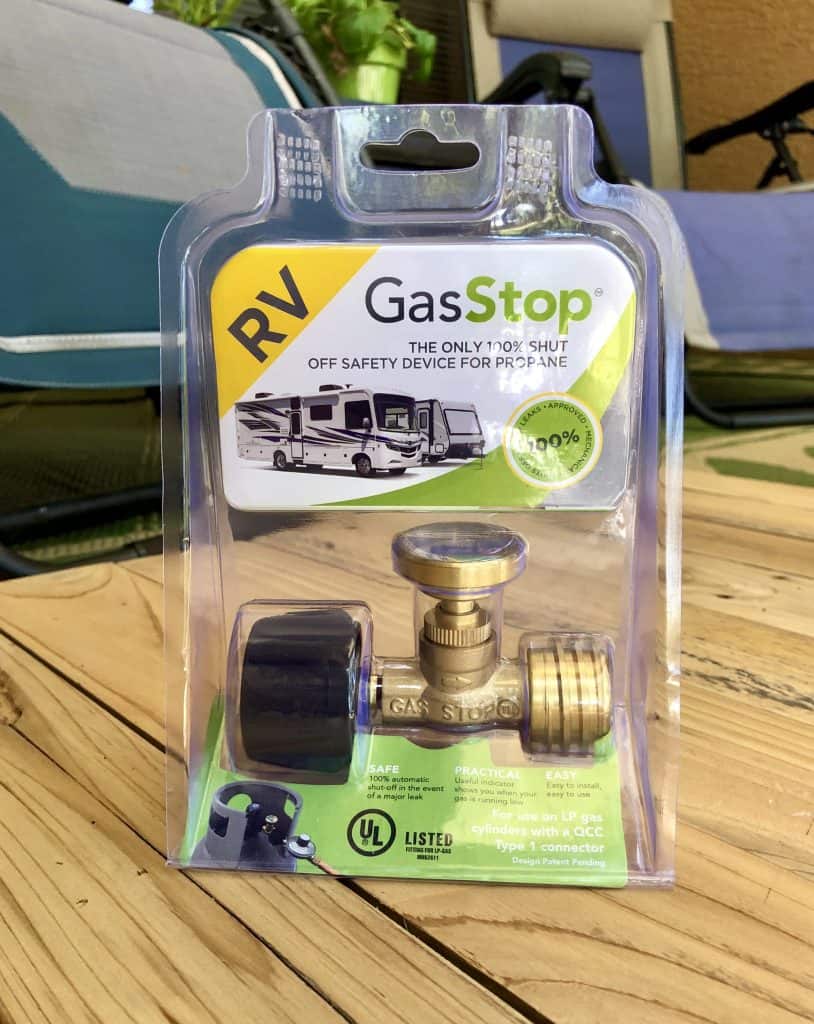
Disclaimer: We received a promotional sample of this external safety valve in order to test and provide an honest review of the product. This review is the honest opinion of the author after using and evaluating the GasStop.
GasStop claims to be “the only shutoff safety device for propane” on the market today. They offer the safety device pictured above for use on LP gas cylinders with a QCC Type 1 connector.
Propane Gas Gauge with Acme universal connection for cylinder, RV camper, travel trailer, and fifth wheel. Emergency shut-off and color coded pressure meter.
This model is designed for use on POL LP gas cylinders. It’s designed for Class A and Class C motorhomes.
POL Connection for Cylinder, emergency shut-off, color coded pressure meter. Designed for Class A and Class C motorhomes. RV-POL device connector.
Here are some additional details about this RV propane safety device that will probably interest you:
- Safe – 100% automatic shut-off in the event of a major leak
- Practical – Useful indicator that shows you when your gas is running low
- Easy – Easy to install, easy to use
- Useful – Installing a GasStop enables you to quickly check your propane system (with included gauge) to ensure that you do not have a minor leak at any connection, hose, or pipe
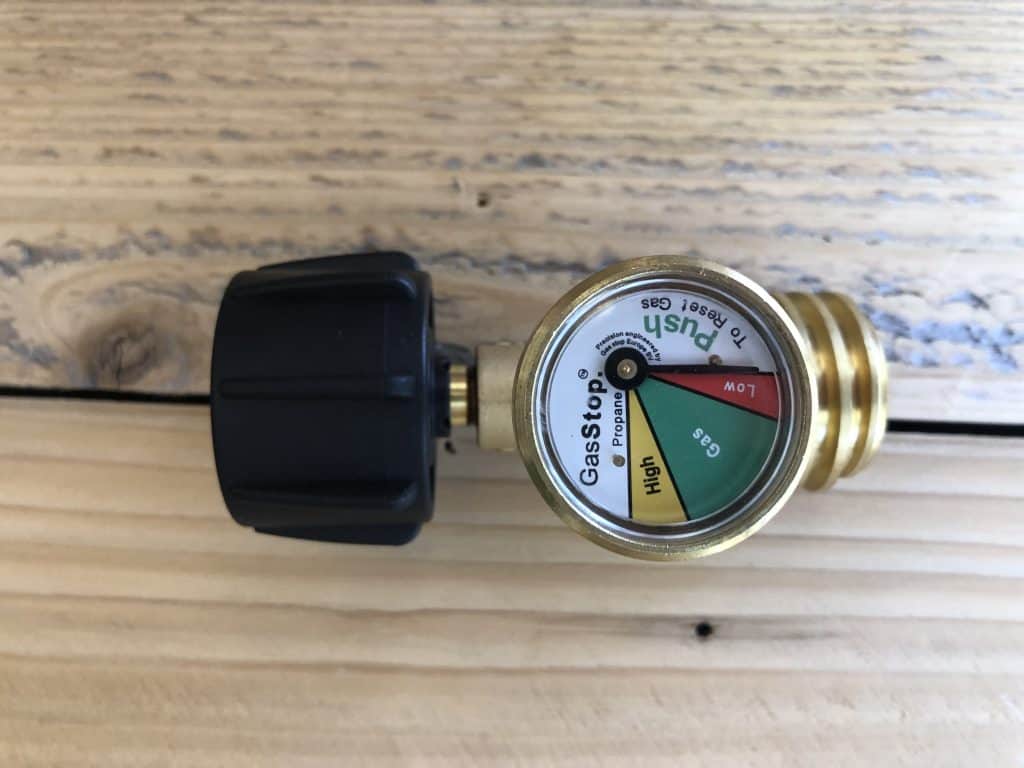
HOW TO USE A PROPANE TANK GAUGE
How easy is this device to use? The simple four-step directions sum up the answer quickly.
- Connect the GasStop to your bottle
- Tighten the GasStop to cylinder
- Connect your propane regulator to the GasStop and install your hose and device as normal
- Pump the gauge 4-6 times to prime the system.
That’s it, you’re good to go.
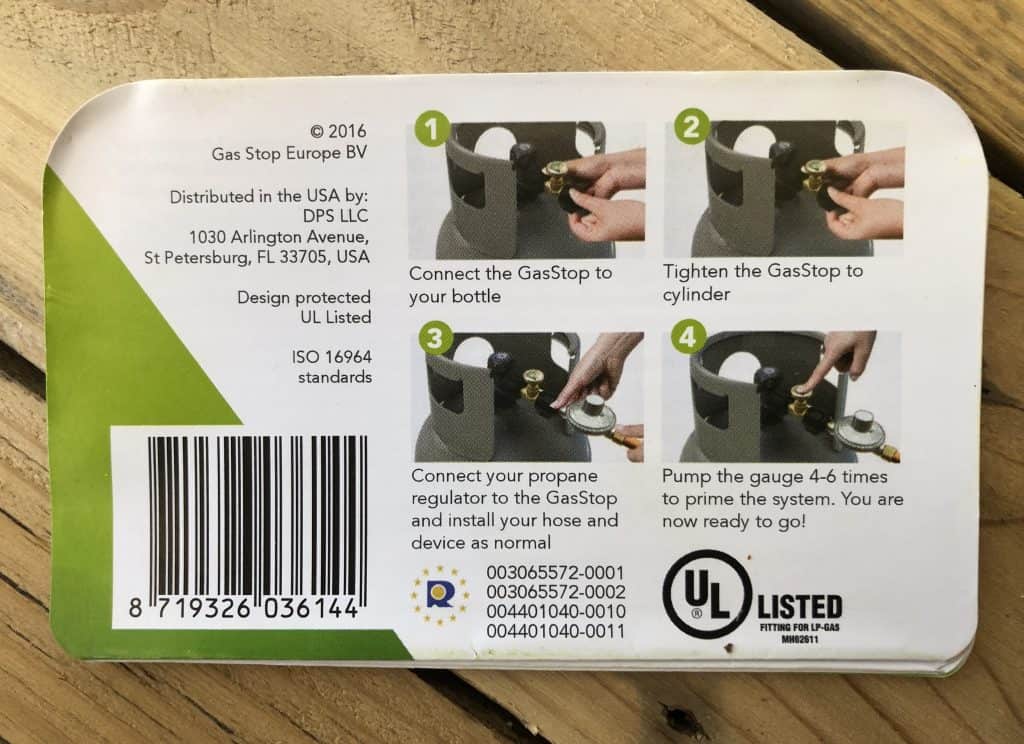
For RV owners, these are the four steps for how to use a GasStop:
- Connect GasStop to a propane tank
- Tighten connection
- Connect RV propane line to GasStop safety device
- Pump pressure gauge 4-6 times to prime the system
IS THERE A WARRANTY ON A GASSTOP GAUGE?
GasStop proudly backs their RV propane safety products with a 5-Year Warranty.
*Note: According to GasStop’s documentation, “During normal gas usage, GasStop will not shut off the system in the event of a minor leak. During normal gas usage GasStop will only shut off in the event of a major leak.”
USING VALVE GAUGE ON A CHANGEOVER
The GasStop can be used on a bulkhead, an automatic, or manual changeover gas pressure regulator.
If you have two propane tanks, you would need to have a GasStop device for each tank. Simply attach a device to the first tank as instructed and repeat the process with the second tank. This will work in line with any changeover device.
WHERE TO PURCHASE A GASSTOP GAUGE
We often buy RV accessories from Amazon for the convenience of free shipping. Of course, you can also stop at just about any local hardware store or Home Depot.
Propane is NOT a DIY Issue!
Always consult a certified LP technician for any issues with your system. Stay safe and don’t attempt a DIY fix on such an important and potentially hazardous system in your RV.
The potential consequences do not justify taking any risks to troubleshoot the problems with a propane system.
Be Prepared to Safely Navigate Your RV Propane System
As always, I hope this information has given you a greater level of confidence related to your RV propane system.
I further hope that you understand the importance of always staying on top of issues related to RV propane safety and making informed decisions related to your own well-being.
Additional Safety Tips for Propane System
Here are a few final propane tank safety tips. Yes, some are obvious, but it’s always worth keeping these top of mind because you know how the saying goes: safety first!
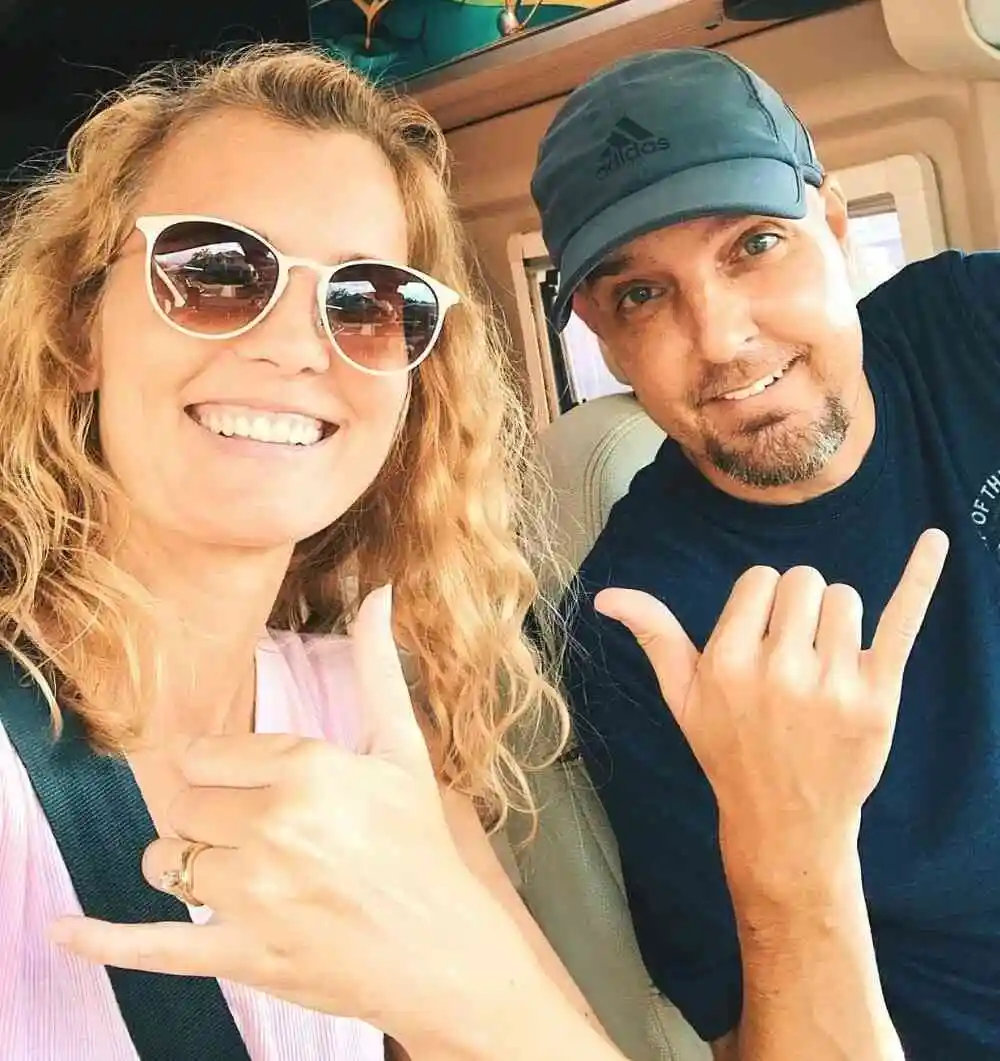
Todd loves a competitive game of table tennis, a breathtaking hike, and exploring new places. He lived and traveled in an RV with his family as they traveled throughout much of the US and parts of Canada. Todd has extensive knowledge about RV travel, safety, and accessories and has shared many of his stories here on TREKKN. When he’s not busy launching and building small businesses, you may find him staring at pictures of Glacier National Park (probably his favorite spot on earth).


